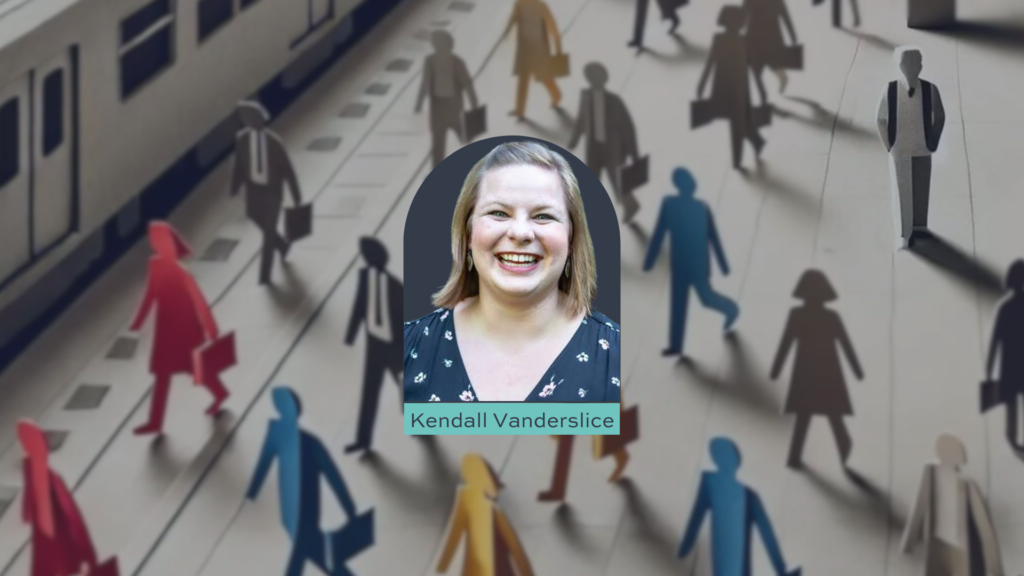Three Ways to Learn
Listen
Watch
Show Notes
What does freshly baked bread have to do with the loneliness epidemic? Could experiencing Christian community be as simple as sharing a meal? In this interview, Kendall Vanderslice shares how her passion for baking and sharing meals has helped her overcome loneliness and dive into Christian community.
Kendall Vanderslice is a baker, writer, speaker, and the founder of Edible Theology, a ministry that connects the Communion table to the kitchen table. She is a graduate of Wheaton College (BA anthropology), Boston University (MLA gastronomy), and Duke Divinity School (master of theological studies). Kendall is the author of the forthcoming book Bake & Pray (October 2024) as well as By Bread Alone and We Will Feast. She lives in Durham, North Carolina, with her big-eared beagle named Strudel, where she teaches workshops on bread baking as a spiritual practice.
In season 5 of the Fresh Expressions podcast, we’re exploring the loneliness epidemic that is sweeping across North America and learning how new kinds of Christian community can help.
Help us spread the word about the Dinner Church podcast by subscribing and leaving us reviews on Apple Podcasts, Spotify, YouTube or wherever you enjoy your podcasts.
Related Resources:
Email us: podcasts@freshexpressions.com
Interview Summary
“If people were a little more open to expressing their own sort of needs or longings, we would find that actually one another’s needs and longings can be met together.” — Kendall Vanderslice
In a world grappling with a loneliness epidemic, building community through shared meals offers a beacon of hope. This concept is vividly brought to life in the insights of Kendall Vanderslice, a baker, author, and theologian who intertwines the act of breaking bread with the forging of community. During this episode of the Fresh Expressions podcast, Vanderslice shared her profound experiences and insights into how meals can act as a conduit for connection and understanding across diverse backgrounds. Her approach brings a unique blend of culinary skill and theological insight, aiming to nourish both body and soul.
Kendall Vanderslice is not just a baker; she is a storyteller whose ingredients include flour, water, and a deep understanding of human connections. Her professional journey in the restaurant industry led her to a theological and writing exploration centered around the theme of community building through bread. Vanderslice holds a background from Duke Divinity School, which further refined her perspective on how shared meals can serve as a spiritual practice and foster communal bonds. Her work transcends the simple act of eating, touching upon the spiritual communion that shared dining can foster.
Exploring “Edible Theology”
Vanderslice introduces the concept of “edible theology,” where the kitchen and dining table become places of divine encounters. Through her workshops and books, she empowers individuals and communities to find spiritual nourishment and community connection in the act of cooking and eating together.
“I get to know god best with my hands in dough,” Vanderslice explains, describing the intimate connection between her faith and her work.
Stories from “We Will Feast”
In her research for the book We Will Feast, Vanderslice visited diverse church communities across the U.S., uncovering how their practice of sharing meals helped them navigate complex times. These stories highlight the transformative power of communal dining in creating spaces for dialogue and understanding amidst differing views. “The gift of seeing a very different example of how the church was at play in that season was the most incredible part of that research,” she reflects on her journey.
The Impact of “By Bread Alone”
In her latest book, By Bread Alone, Vanderslice explores her personal journey with loneliness and community, woven together with theological insights into bread as a symbol of communal life and sustenance. The narrative provides a personal touch, making the theological discussions relatable and grounded in real-life experiences. It serves as a memoir and a theological exploration, inviting readers to reflect on their own relationships with food, faith, and community.
This book became also a spiritual memoir of sorts, a story of my own story and how god had shaped me in community and through bread.”
Community and Loneliness
The conversation also delved into how modern loneliness can be combated through intentional communal interactions, particularly around the table. Vanderslice shared personal anecdotes demonstrating the profound impact of shared meals in her life and the lives of those in her community. “I had a chapter near the beginning of it that was on loneliness… and after that, I started hearing that from several people. Thank you for writing this chapter on loneliness,” she recounts, highlighting the widespread resonance of her work.
Kendall Vanderslice’s work and insights remind us that at the heart of every community is the simple, yet profound act of sharing a meal. Her stories and methodologies not only inspire but also offer practical pathways for individuals and churches to foster deeper connections in an increasingly isolated world. The essence of her message is clear: shared meals are a fundamental, yet often overlooked, ingredient in the recipe for building robust and resilient communities.
Reflection Questions
- How can I create more inclusive and welcoming meal-sharing experiences in my community?
- What barriers to community connection might we be able to overcome by gathering around the table?
- How does my personal experience with isolation or loneliness shape my approach to community building?
- What role does food play in my spiritual life and how can I deepen this connection?
- Are there groups in my community who might particularly benefit from targeted meal-sharing initiatives?
- How can the act of preparing food be a form of meditation or prayer in my life?
- What stories of connection have I observed or experienced that were facilitated by sharing a meal?
- How can we use meals as a way to bridge cultural, generational, or ideological divides?

